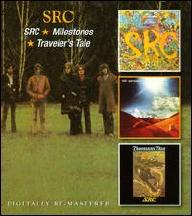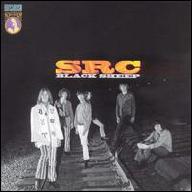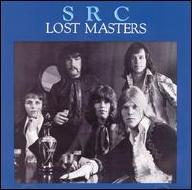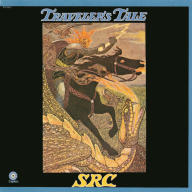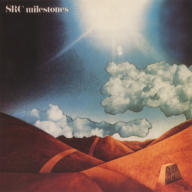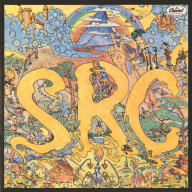The earliest incarnation of SRC came from a union of two noted Michigan garage bands of the mid-'60s. The Fugitives were a band from the Detroit suburb of Birmingham featuring Gary Quackenbush on lead guitar, his brother Glenn Quackenbush on organ, Steve Lyman on rhythm guitar, John Boyles on bass and lead vocals, and E.G. Clawson on drums. The Fugitives were popular on the Detroit-area teen club circuit, and released an album on the local Hideout label, The Fugitives at Dave's Hideout (despite the abundance of crowd noises, it wasn't actually recorded at the Hideout teen club, but at the home of the Quackenbush brothers).
By 1967, the Fugitives were looking for a change, and when John Boyles left the group, their manager, Hugh Jeep Holland, introduced them to Scott Richardson, singer with the recently dissolved band the Chosen Few (whose lineup included Ron Asheton and James Williamson, who would go on to play in Iggy the Stooges). With Richardson as their new vocalist and Robin Dale on bass, the band adopted the new name the Scott Richard Case. Holland wasted no time taking the band into the recording studio, releasing a single on his A-Squared Records label, "I'm So Glad" b/w "Who Is That Girl," and the A-side, a cover of a Skip James blues number, became a major local hit. However, as the group began evolving creatively, the bandmembers found themselves at odds with Holland, and the group fired its manager; he responded by releasing an unreleased track, "Get the Picture," on an A-Squared single credited to "The Old Exciting Scott Richard Case."
Undaunted, by 1968 the group had changed its name from the Scott Richard Case to SRC, and attracted the interest of Capitol Records, which signed the band and issued its first album, simply titled SRC, in the fall of that year. The album sold well in the Detroit area, and SRC toured through the East Coast to promote the release, though by the end of 1968 the group had a falling out with bassist Dale, and Al Wilmot was recruited to replace him.
For the group's second album, Milestones, SRC recorded most of the album at the rehearsal space in their band house, while doing final tracking at overdubs at Detroit's Tera Shirma Recording Studios, where they had cut the first album. Milestones received enthusiastic reviews, but didn't fare as well in the marketplace as the debut, and before the album was completed in early 1969, Steve Lyman was kicked out of the band, with SRC moving onward with just one guitarist. While the band played a pair of shows in California to promote Milestones, the bulk of their concerts were in Michigan, and in the fall of 1969, Gary Quackenbush had a falling out with his bandmates. Quackenbush left SRC, and Ray Goodman became their new guitarist in time for their third album, which was recorded entirely in SRC's home studio.
Traveler's Tale was released in March 1970, and by the time it hit stores, Goodman had left SRC and Gary Quackenbush returned to the fold. Sales of Traveler's Tale were disappointing, and in 1971, Capitol dropped the band, though a fourth album's worth of material had already been recorded at SRC's increasingly sophisticated studio. During this period, Al Wilmot left SRC, and Richard Haddad, aka Richard Michaels, became their new bassist. A small label called Big Casino Records released an SRC single, "Born to Love" b/w "Badazz Shuffle," but it attracted little attention, and soon the band was playing shows under the name Blue Scepter. Blue Scepter scored a record deal with Motown's rock subsidiary Rare Earth, which issued a single by the band in early 1972, "Out in the Night" b/w "Gypsy Eyes," but sales were poor and a full-length Blue Scepter album was recorded but never released.
In early 1973, Richardson and Haddad decided to leave SRC and form a band of their own, the Fallen Angels, and the remaining members of SRC chose to call it a day. In 1993, the recordings for the proposed fourth SRC album were issued under the title Lost Masters, and as interest in the band grew over the years among fans of Michigan rock, SRC staged a handful of reunion shows in 2011 and 2012. ~ Mark Deming, Rovi


